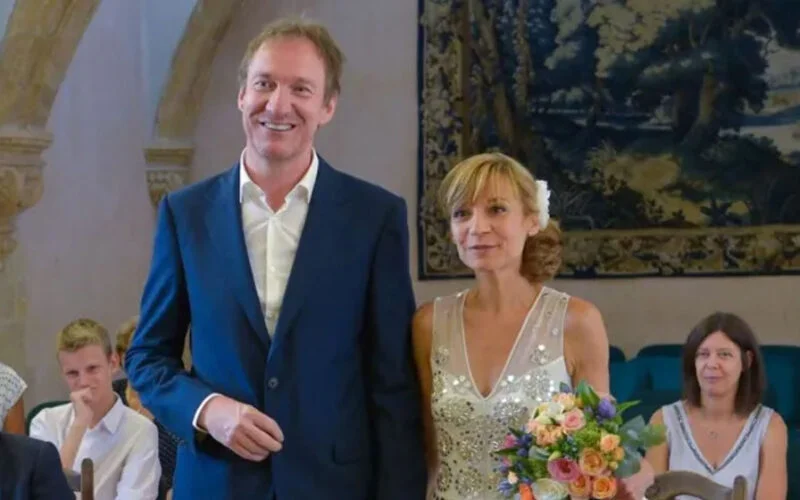In the ever-evolving world of environmental science and wildlife conservation, few names command as much respect as Hermine Poitou. A visionary French ecologist, Poitou has built a formidable reputation as a defender of biodiversity and a vocal advocate for coexistence between humans and the natural world. Her life’s work has spanned continents and species, and her innovative approach to ecological preservation is widely studied and admired.
Born in France, Hermine Poitou’s early fascination with the natural world shaped her path. From studying wolves in Europe to promoting rewilding initiatives, she has consistently placed herself at the forefront of ecological research and activism. This article dives deep into her background, achievements, methodologies, and the legacy she is crafting for future generations.
Early Life and Academic Foundations
Hermine Poitou was born in a small French village, where verdant forests and rural landscapes nurtured her connection to the natural world. Her early experiences exploring the countryside fostered a deep appreciation for animals and ecosystems. This passion led her to pursue formal studies in biology and ecology at prestigious French universities.
She earned a Master’s degree in Ecology and Evolutionary Biology, where her academic excellence and keen observational skills earned her numerous accolades. From there, Poitou began conducting field research, particularly focused on predator-prey relationships and the role of large carnivores in regulating ecosystems.
Career Milestones in Conservation
A Voice for Wolves in Europe
One of Hermine Poitou’s most notable contributions has been her research and advocacy work centered around wolves in France and other parts of Europe. At a time when public sentiment was still largely wary or hostile toward the reintroduction of wolves, Poitou emerged as a rational, scientific voice in the debate.
She conducted groundbreaking field studies that tracked wolf movements, analyzed scat samples for diet insights, and developed GIS-based models to predict human-wildlife conflict zones. Her work demonstrated that wolves, far from being a threat, are critical to maintaining the health of ecosystems by controlling overpopulated prey species.
Working with Governments and NGOs
Hermine Poitou has collaborated with both governmental bodies and non-governmental organizations to shape policy and conservation programs. Her ability to translate complex scientific findings into actionable recommendations has made her a sought-after consultant. She has been involved in drafting management plans that balance ecological needs with those of local communities, especially farmers and livestock herders.
Her work has influenced France’s national conservation strategy and contributed to broader EU initiatives aimed at biodiversity protection. In particular, she has played a key role in advocating for compensation schemes that mitigate economic losses for rural communities impacted by predator presence.
Rewilding and Public Education
Another major focus of Poitou’s career has been rewilding—the process of restoring landscapes to their natural, unmanaged states by reintroducing key species. Through her involvement in rewilding initiatives, she has helped reintroduce not only wolves but also lynxes and wild horses to areas where they had long been extinct.
Beyond fieldwork, Hermine Poitou is a gifted communicator. She regularly speaks at conferences, participates in documentary films, and contributes to educational programs that aim to shift public perception about wildlife. Her charismatic yet evidence-based communication style helps bridge the gap between science and the general public.
Philosophy and Methodology
The Ecosystem Approach
Central to Hermine Poitou’s philosophy is the idea that conservation must consider entire ecosystems rather than isolated species. This holistic view recognizes the complex interdependencies that sustain biodiversity. Her research methods reflect this by integrating ecological, sociological, and economic data to create robust conservation models.
Community-Centered Conservation
Another hallmark of her work is an emphasis on community involvement. Poitou believes that successful conservation is only possible when local communities are part of the solution. She often works directly with stakeholders, including farmers, indigenous groups, and policymakers, to co-create strategies that align ecological goals with human interests.
Scientific Rigor
Poitou maintains high standards of scientific integrity in her research. She employs a diverse toolkit of methods including camera trapping, satellite telemetry, and DNA analysis. Her peer-reviewed publications are widely cited, and she actively mentors young ecologists entering the field.
Impact and Recognition
Awards and Honors
Over the years, Hermine Poitou has received numerous awards for her work in conservation biology. These include national recognitions such as the Ordre National du Mérite for her contributions to science and international awards from wildlife organizations.
Her influence extends into academia as well, with honorary lectureships and visiting scholar positions at leading universities in Europe and North America. She is also a board member of several environmental think tanks.
Global Reach
While much of her work is centered in France, Hermine Poitou has also contributed to international projects. She has advised conservation programs in Africa, collaborated on biodiversity initiatives in South America, and partnered with Arctic researchers studying climate impacts on predator populations.
Her global footprint underscores the universal applicability of her ideas and the growing demand for her expertise.
Personal Life and Interests
Despite her high-profile career, Poitou maintains a low public profile when it comes to her personal life. She resides in a rural region of France, close to nature, where she continues her field studies and finds inspiration in the landscapes that first sparked her interest in ecology.
In her free time, she enjoys photography, hiking, and writing essays about the philosophical dimensions of human-wildlife relationships. She is also an advocate for mental well-being among conservationists, a field known for its emotional and physical tolls.
Hermine Poitou in the Spotlight
A Unique Voice in the Climate Era
In an era where climate change and biodiversity loss dominate environmental discourse, Hermine Poitou has emerged as a voice of reason and hope. Her balanced, research-driven approach offers solutions that are both visionary and practical. While others may focus solely on doom-and-gloom scenarios, she provides blueprints for action, rooted in science and empathy.
Media and Outreach
Poitou has been featured in several international documentaries and interviews. Her appearances often highlight not just the biological aspects of her work but also the ethical and cultural dimensions of conservation. This multi-faceted approach appeals to a wide audience and helps foster a broader appreciation for ecological stewardship.
Challenges and the Road Ahead
While her career has been marked by impressive achievements, Poitou acknowledges that challenges remain. These include political resistance, habitat fragmentation, and the ever-present threats posed by climate change.
Still, she remains undeterred. Her current projects involve creating wildlife corridors to link fragmented habitats and developing AI-driven tools for real-time ecosystem monitoring. These forward-thinking efforts exemplify her ability to adapt and innovate in the face of adversity.
FAQs
What is Hermine Poitou best known for?
She is best known for her ecological research on wolves, her work in rewilding, and her contributions to conservation policies in Europe.
Where is Hermine Poitou from?
She is originally from France, where much of her early and current conservation work takes place.
What are some key conservation principles she follows?
Her core principles include the ecosystem approach, community involvement, and scientific rigor.
Has Hermine Poitou worked internationally?
Yes, she has contributed to conservation efforts in Africa, South America, and the Arctic, among others.
Is Hermine Poitou involved in education or public outreach?
Absolutely. She frequently speaks at conferences, participates in documentaries, and mentors young scientists.
Conclusion:
Hermine Poitou is more than just a scientist; she is a conservation pioneer whose work transcends borders and disciplines. Her unwavering commitment to preserving the natural world while fostering human understanding has left an indelible mark on both ecosystems and minds.
As global awareness of environmental issues continues to grow, so too does the importance of figures like Hermine Poitou. Her blend of intellectual rigor, emotional intelligence, and grassroots engagement offers a model for future generations of ecologists, activists, and policymakers. In a world yearning for harmony between humanity and nature, Poitou’s legacy is a beacon lighting the path forward.



